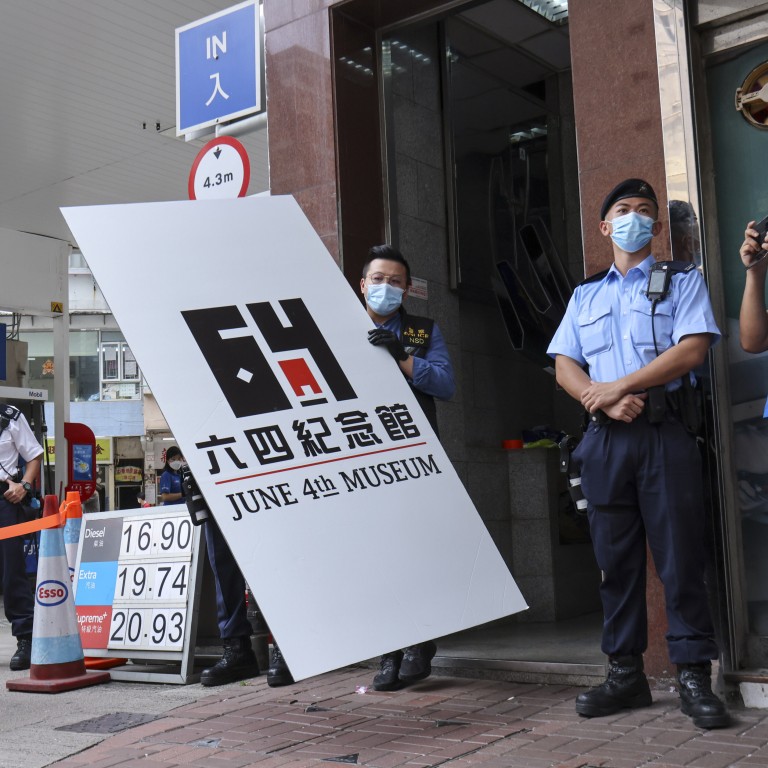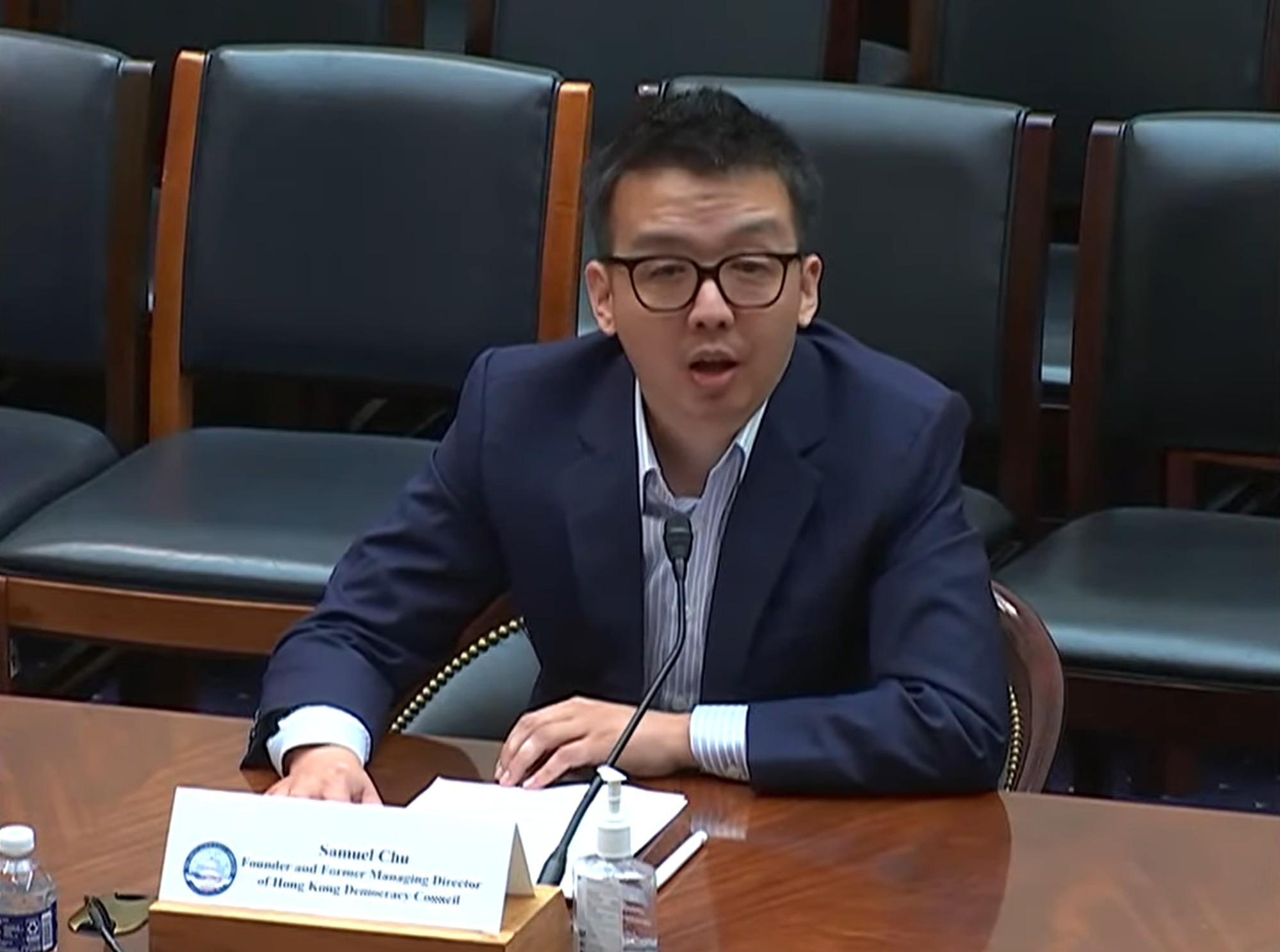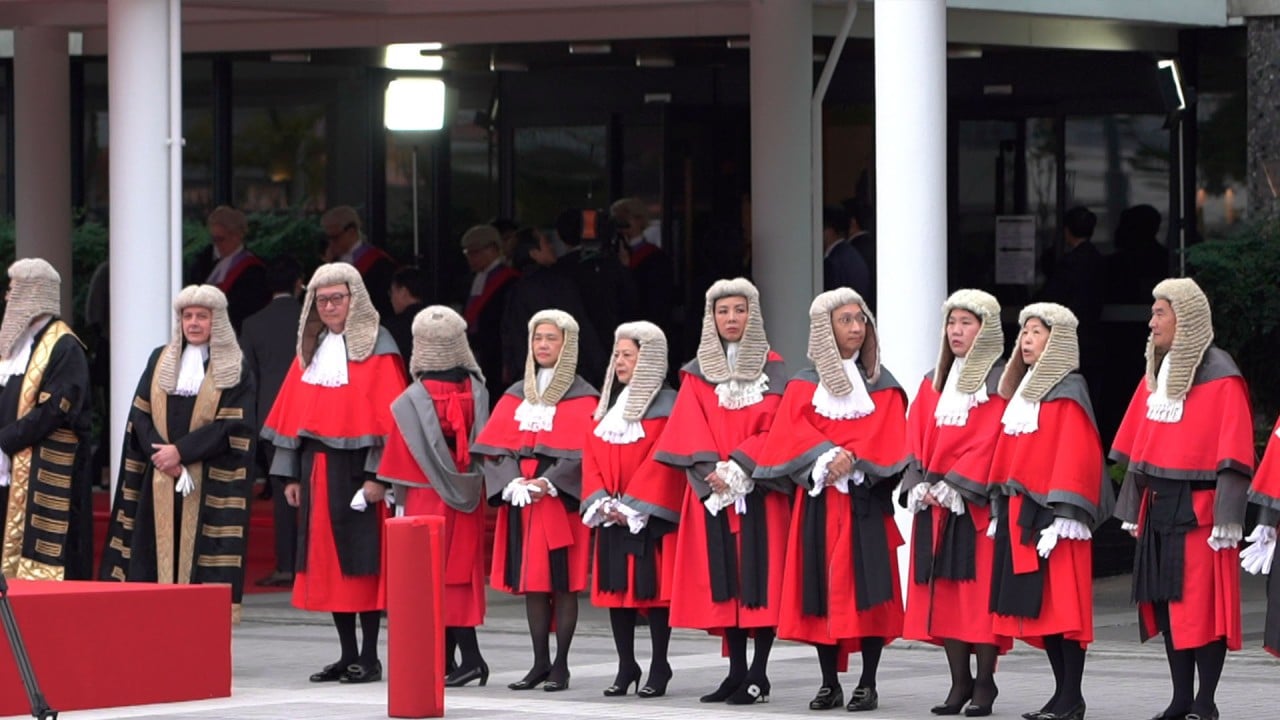
Hong Kong security law arrests, elections slammed in US State Department report
- City authorities are criticised for using the national security law to arrest and detain Hongkongers ‘for nonviolent political expression or activities’
- Beijing ‘played an unprecedented role in directing the outcome of the Hong Kong elections’, says the State Department’s annual report
The central Chinese government played an “unprecedented role” over the past year in efforts to direct the outcome of elections in Hong Kong, the US State Department said on Thursday.
Across the board, the findings paint a bleak picture of deteriorating liberties in Hong Kong politics, media and civil society, leading Secretary of State Antony Blinken to reaffirm Washington’s position that Hong Kong “does not warrant” special US treatment distinguishing it from the rest of China.
“Over the past year, the People’s Republic of China (PRC) has continued to dismantle Hong Kong’s democratic institutions, placed unprecedented pressure on the judiciary and stifled academic, cultural and press freedoms,” Blinken said.
Leading the State Department’s litany of concerns were measures taken by Beijing in March last year to overhaul Hong Kong’s electoral system, expanding the powerful Election Committee to include a new pro-establishment sector and giving the body new authorities to decide who can run for seats in the Legislative Council (Legco).
“PRC officials played an unprecedented role in directing the outcome of the Hong Kong elections,” the State Department report said.
In the first Legco elections since the changes, the city’s pro-establishment camp won all but one seat in December, fortifying its hold on the city’s legislature that had grown since imposition of a sweeping national security law in 2020.
Those elections saw the lowest voter turnout since 1997. City officials played down the low turnout and argued that voters had a “diverse” range of choices, even as major opposition parties fielded no candidates.
Pro-establishment camp makes nearly clean sweep in Hong Kong’s Legco poll
The State Department also criticised Hong Kong police for arresting more than 50 people over the past year for alleged violations of the national security law, as well as detentions “for lengthy periods without trial for nonviolent political expression or activities”.
And it accused the city’s authorities of having “eroded the judiciary’s independence and ability to uphold the rule of law”, including by deciding which judges could handle national security cases, increasing the threshold of bail and allowing jurors to be replaced with a panel of three judges.
Such was the case with the first national security law-related prosecution to go to trial last July, when Hong Kong’s justice secretary argued that a jury trial in the case of 24-year-old Leon Tong Ying-kit would “put jurors’ safety at risk”.
Tong was sentenced to nine years in prison over a 2020 incident in which he collided with police officers while riding a motorcycle fitted with a flag calling for Hong Kong’s “liberation”.
Thursday’s report came a day after Britain withdrew its last two serving judges from Hong Kong’s highest court, with British Foreign Secretary Liz Truss declaring that declining liberties had reached a “tipping point where it is no longer tenable for British judges to sit on Hong Kong’s leading court, and would risk legitimising oppression”.
Imposed on Hong Kong by Beijing in 2020, the national security law criminalises a broad range of acts under the categories of terrorism, secession, subversion and collusion with foreign powers.
Over the past year it was invoked by authorities to seize the assets and arrest the senior leadership of two anti-government news outlets, Apple Daily and Stand News, forcing them to close.
Some international businesses have left Hong Kong since the law’s enactment, with the number of US companies with regional headquarters there falling in 2021 to its lowest level in 18 years, according to Hong Kong government data.
Hong Kong’s first national security trial: all you need to know
Over the past year, some 15,000 US citizens were estimated to have left Hong Kong, the State Department said in its report, pointing to strict Covid-19 mitigation policies and “other factors”.
Citing the January 2021 arrest of an American human rights lawyer under the national security law’s authority, it said that Americans who were publicly critical of the Chinese government were now at “heightened risk of arrest, detention, expulsion or prosecution”.
The State Department currently recommends that US citizens not travel to Hong Kong, citing “arbitrary enforcement of local laws and Covid-19-related travel restrictions”.
While Thursday’s report was not a policy document, Samuel Chu, founding president of the Campaign for Hong Kong, predicted it would set the foundation for further actions by US lawmakers and President Joe Biden’s administration.
“Just as we have isolated Russia economically and globally for its human rights violations and ‘war crimes’, we cannot continue to allow the Beijing and Hong Kong regimes to benefit from their status and privileges while repressing their own citizens and threatening foreign citizens,” said Chu, who in 2020 became the first foreign citizen targeted by Hong Kong authorities under the national security law.

Even as the administration and lawmakers from both parties have been largely unified in their concerns about Beijing’s handling of Hong Kong, Congress continues to pressure the executive branch to do more.
In its annual report released Thursday, the Congressional-Executive Commission on China (CECC) appealed to the administration to step up sanctions against financial institutions involved in the erosion of China’s commitments to uphold Hong Kong’s autonomy.
The CECC also urged the administration to improve funding to non-governmental organisations working to promote the rule of law in Hong Kong, and initiate an “urgent discussion” at the United Nations Human Rights Council on the state of human rights in the city.


